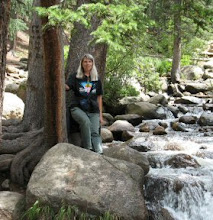 Arizona introduced me to vultures when I was about 22 years old. In those days, Turkey Vultures (Cathartes aura) hadn't yet penetrated the habitats of upstate New York where I grew up, so I had to come west to make their acquaintance. Because they were new to me (as were many other living things in Arizona), they were automatically fascinating.
Arizona introduced me to vultures when I was about 22 years old. In those days, Turkey Vultures (Cathartes aura) hadn't yet penetrated the habitats of upstate New York where I grew up, so I had to come west to make their acquaintance. Because they were new to me (as were many other living things in Arizona), they were automatically fascinating.
 Parts of the desert landscape, too many parts I'm sure, were home to cows, and often some of those cows were recently deceased. Not until I reached the desert grasslands of southern Arizona, though, did I see vultures in numbers. I captured this photo back then, probably somewhere between Elgin and Fort Huachuca.
Parts of the desert landscape, too many parts I'm sure, were home to cows, and often some of those cows were recently deceased. Not until I reached the desert grasslands of southern Arizona, though, did I see vultures in numbers. I captured this photo back then, probably somewhere between Elgin and Fort Huachuca.
Unlike other raptors, Turkey Vultures are happy with a cold buffet, one that Nature quite regularly lays for them. Everything dies, and everything must be recycled, sooner or later, one way or another. With vultures, it's sooner. They may not always come first to the feast, but once they arrive, other feathered scavengers must move on, or be adept at dodging in for leftovers.
Unlike most birds, Turkey Vultures have a keen sense of smell as well as eyesight, quickly finding new sources of food. Their range expansion northward in recent decades has been attributed to climate changes, increases in open habitat relative to forests, protection from hunting, and, my personal favorite, opportunism as a result of our expanded highway system. More and better roads--> faster speeds--> more roadkill--> vulture habitat improvement! An ironic and unintended benefit from our continued environmental deterioration.
There's a nice article on range expansion here, as vultures return to Vermont. Turkey Vulture populations are apparently strong, unlike other vultures in other parts of the world. Thanks to the folks at IVAD, who are working to create awareness of conservation needs of these fascinating birds, without whose help we'd be hip-deep in rotting carcasses!
Check out more about vultures over at IVAD headquarters. See, especially, Tai Haku's contribution, which is loaded with excellent photos and a timely reminder of appropriate human funeral customs.








